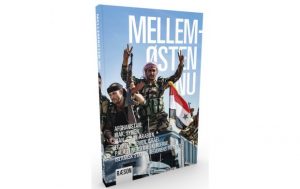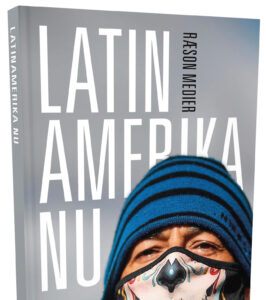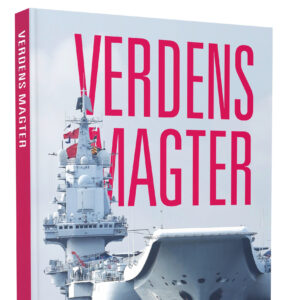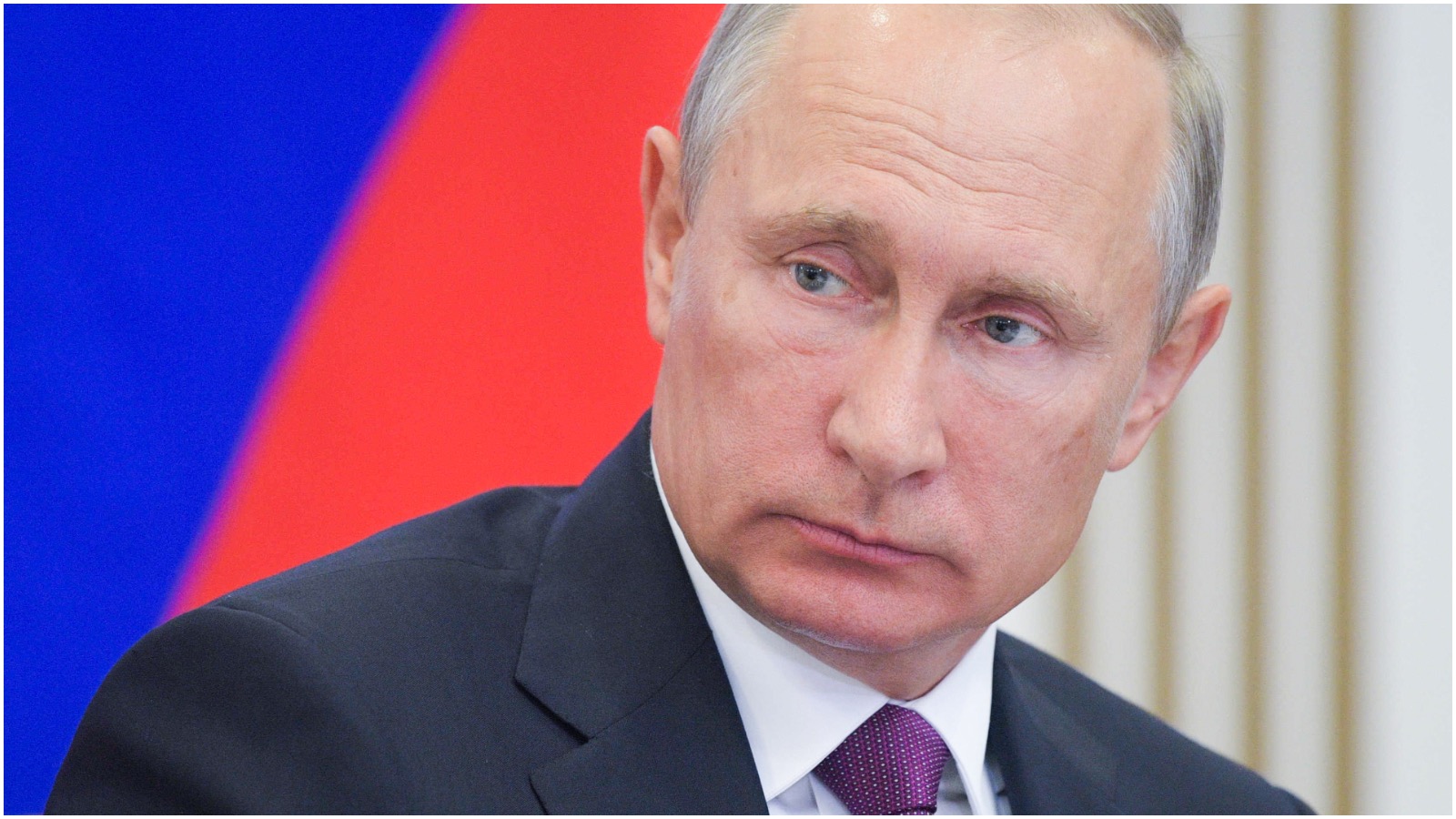
„During the next couple of months, we will see quite a lot of aggressive moves on the Russian side‟
Interview with Nikolay Kozhanov
23.08.2017
.„Russia’s diplomacy in the Middle East is a kind of a miracle. Their approach should have failed many years ago. The attempt to always balance between different actors creates a lot of dissatisfaction in the Middle East. For instance, the Israelis are not happy when Russia is flirting with Iran. And the Iranians are not happy that Russia closes its eyes to Israeli air raids in Syria‟
„Moscow annexed Crimea and supported the anti-Kiev rebels in the east of Ukraine. And the speed with which this decision was taken showed, again, that it was quite an emotional decision. From this point of view, Putin and his circle are, on the one hand pragmatic, but, at the same time, we should not exclude the influence of personal bias and emotional influence on decision-making in the Kremlin‟
„Putin is pragmatic. And this is the term that you should apply to Putin, Russia, and Russian domestic and foreign policy. It says a lot about his political legacy‟
Interview by Max Secher Quorning
RÆSON: What is Russia’s strategy in the Middle East?
We are still in the process of seeing how Russia is working out its strategy. Until 2012-2013, Russia basically saw the Middle East as a trading item in its relations with the West, primarily the US. As a result, whenever these relations cooled down, Russia intensified its dialogue with pariah states or semi-pariah states like Iran. And when Russian-Western relations were improving, Russia cooled down its relations with US opponents in the region.
Yet, things have changed after Putin’s return to the presidential seat. Now, Russia is more interested in actually developing its relations with the Middle East. Of course, the main reason for this change was the recent confrontations with the West. The complex situation demanded Russia to take the Middle East more seriously.
Now, Russia is more interested in actually developing its relations with the Middle East. Of course, the main reason for this change was the recent confrontations with the West. The complex situation demanded Russia to take the Middle East more seriously
_______
RÆSON: Can you give us some examples?
First of all, Russia has become more interested in its economic ties with the Middle East. For instance, in the last five years, Russia has carefully planned its strategies in the oil and gas sector. As a consequence, the Russians have been able to establish better relations with the Middle Eastern countries in this area.
Another example is the fact that Russian relations with the Middle Eastern countries have become more stable now. Iran is a case in point. During the last 20 years, there were a lot of fluctuations in the relations between these two countries. Now, Russia is trying to build up a solid base for a partnership with Tehran that could be sustainable in the future. There is an understanding that Iran matters for Russian interests in the region.
RÆSON: Are there other reasons for these changes, for the fact that Iran is becoming viable as a long-term ally for Russia?
Well, another reason for this change may be the Arab Spring and the Syrian civil war. The Arab Spring was a wakeup call in Moscow. Russia could basically have lost its presence in the Middle East if it had continued its previous foreign policy in the region. The Russians woke up largely after the death of Muammar Gaddafi, suddenly realizing that their potential losses in the Middle East were huge. Iran was one among the few pro-Russia countries left on the map, and given the character of the situation, it was probably easiest to start off by bolstering the Iranian relations.
One of the usual mistakes made by Western and Russian analysts is to only focus on two issues of the Russian-Iranian dialogue: Syria and Iran’s nuclear program. Of course, these issues matter. However, at the same time, Iran is important for Russia as a country that can influence the situation in the post-Soviet space, Middle East and Central Asia (first of all, in Afghanistan). Moreover, it possesses one of the largest gas and oil reserves in the world which rises its importance for Russia. In other words, there are a number of reasons.
One of the usual mistakes made by Western and Russian analysts is to only focus on two issues of the Russian-Iranian dialogue: Syria and Iran’s nuclear program. Of course, these issues matter. However, at the same time, Iran is important for Russia as a country that can influence the situation in the post-Soviet space, Middle East and Central Asia
_______
RÆSON: Are these reasons for the overall Middle East strategy similar to the specific reasons for intervening militarily in Syria? Or is it something different?
On a general level, direct Russian military involvement in the Middle East is still something exceptional. Moscow is pragmatic, and it realizes that any military operation is extremely risky.
When it comes to the involvement in Syria, there are several reasons. Firstly, Russia wanted to confront the West. Secondly, in light of the development of the Ukrainian crisis, Russia started seeing Syria as a way to keep at least one channel of communication with the US and the West open. From a Russian point of view, as long as Russia is involved in Syria, the West has to talk to Moscow. The third reason is related to the changes in the Syrian crisis itself: In late September and early October 2015, Russia’s military involvement was quite important for the development on the ground. Russia was concerned with the spread of jihadism in the Middle East and with the threat that it posed to the stability of the post-Soviet space.
I interviewed a lot of people who were either from the military circles, political experts in Russia, or Russian officials, and I concluded that the latter was a genuine concern. Most of the Russian decision makers currently in charge came to power in the late 1990s during the second Chechen War when local separatists were getting support and assistance from abroad. Consequently, the Russian authorities are haunted by the horrors of that war and the idea that external support of radicals, especially in the Muslim regions of the post-soviet space, can destabilize Russia or its neighbors.
RÆSON: Mosul is more or less cleared of ISIL fighters. And the battle is ongoing in Raqqa. When Raqqa falls, what will be the main objective of Russia in Syria? What do they hope to achieve?
Actually, I am a little pessimistic about the fall of Raqqa, largely due to developments on the ground. I do not think Raqqa will be recaptured anytime soon. For the Assad regime, it is much more important to recapture Deir ez-Zor, partly because it will please the Iranian allies, partly because it will secure a certain access to oil resources in Syria. Yet, Russia considers any military operation in Idlib [the rebel-held province in northwestern Syria, ed.] or Deir ez-Zor to be extremely challenging. From what I have heard, the Syrian regime tried to persuade Russia to do an operation against Idlib, but the answer was no. Russia would prefer to avoid becoming too deeply involved – the Russians want to prevent a second Afghanistan.
I do not think Raqqa will be recaptured anytime soon. For the Assad regime, it is much more important to recapture Deir ez-Zor, partly because it will please the Iranian allies, partly because it will secure a certain access to oil resources in Syria
_______
Thus, Moscow is currently much more interested in trying to be the allies of the Syrian regime on the diplomatic track; but, of course, on its own conditions. We should have no illusions about that.
RÆSON: The US, on their part, are primarily focused on fighting ISIL and the local al-Qaeda branch. Are there some areas in Syria where they might be able to see eye to eye with Russia?
As far as I know, there certainly is dialogue on the military level. But any full-fledged cooperation between the US and Russia is hardly possible nowadays. First of all, there is a high level of mistrust between mid- or low-level military officials, partly because previous agreements reached at higher levels have not been implemented on the lower levels. Secondly, with respect to any big deal on Syria, it is important for Russia to show their regional partners, especially Iran, that they are still tough on the US. Finally, there is still a different vision of the source of issues and the priorities. For the US, the whole plan is fighting against al-Nusra [al-Qaeda’s branch in Syria] and the Islamic State. For Russia, the Islamic State and al-Nusra are not the source of the problem; rather, they are a product of the war. For the Russians, the real problem is the civil war and the destabilization of the governmental institutions in Syria. The top priority is to ensure their stability.
RÆSON: Politically, the Russian involvement in Syria has been very successful. However, as you mentioned, to Russia, any country in the Middle East is important. And in the Qatari crisis with the GCC, US secretary of state Rex Tillerson has been more active than any Russian official. How does Russia view the GCC-Qatar crisis?
The Russian approach to the Middle Eastern region is based on four main principles. Firstly, the Russians talk to any country that wants to talk to them. Secondly, there is an extreme pragmatism: no ideology, just business. Thirdly, they are exploiting the mistakes made by the US. Whenever there is local or regional disappointment in the US, Russia can use it as a chance to better its position. And finally, the most important principle is that Russia does not take sides. Instead, it is going to balance between the key players. The principle of balance is of central importance.
So, in the Qatar/Saudi dispute, or even in the Saudi/Iranian rift, we do not see Russia being proactive; that would be to let the damages to the Middle East inflicted by the Syrian civil war affect its broader interests in the region. For instance, in the Saudi/Qatari rift, Russia needs Saudi money for investments in the Russian economy. Yet, Qatar has already started doing these investments, while the Saudis are just making promises. Spoiling relations with each of these countries would entail certain economic losses.
Hence, Russia tries to distance itself from the conflict between Doha and Riyadh, Yet, at the same time, I still believe that Russia is much more pro Qatar than pro Saudi Arabia. As already mentioned, Doha has invested in the Russian economy – around 2.5BUS dollars – whereas the Saudis has only made promises. Moreover, the frequent confrontations with Doha has demonstrated to Moscow that Qatar could be much more influential and dangerous than the Saudis. Therefore, it is better to have the Qataris on board. In addition, in January 2016, the emir of Qatar [Tamim bin Hamad Al Thani, ed.] visited Moscow, and Qatari delegations are quite frequent visitors in Russia. King Salman of Saudi Arabia, on the other hand, still fails to visit Moscow. Given the personal involvement factor in Russian foreign policy, this may offend the Russians.
On a more general level, Russia’s diplomacy in the Middle East is a kind of a miracle. Their approach should have failed many years ago. The attempt to always balance between different actors creates a lot of dissatisfaction in the Middle East. For instance, the Israelis are not happy when Russia is flirting with Iran. And the Iranians are not happy that Russia closes its eyes to Israeli air raids in Syria. Logically, sooner or later, Russia will have to make a choice, and this choice would ruin the whole structure of relations that Russia has built up in the region. Yet, and herein lies the miracle, for at least the last five years, Russia has specifically avoided taking sides – and done so successfully. They continue their balancing act, and it is actually getting more and more profitable to Russia. Currently, like it or hate it, Russia is one of the most important players in the region.
Russia’s diplomacy in the Middle East is a kind of a miracle. Their approach should have failed many years ago. The attempt to always balance between different actors creates a lot of dissatisfaction in the Middle East. For instance, the Israelis are not happy when Russia is flirting with Iran. And the Iranians are not happy that Russia closes its eyes to Israeli air raids in Syria
_______
RÆSON: In an interview with Carnegie Middle East Center last year, you argued that Russia and Iran being neighbors serves as a purpose for long-term dialogue itself. Yet, Putin is tough on Islamic fundamentalism and jihadism in the post-Soviet space and domestically. Considering this, will he be able to bridge closer contacts to the Islamist leadership in Tehran?
I do not see Russia and Iran becoming allies in the full sense of the word. The strategic goals and the vision of the region are simply too different for them. Russia is trying to reestablish itself as an important international power, and the Middle East is just one part of this puzzle. Iran is striving for regional dominance in the Middle East itself.
Secondly, while their visions on different international issues are quite close, they are not completely compliant with one another. For instance, in the case of Syria, legal status of the Caspian Sea and the situation in the energy markets, Moscow and Tehran see these situations a little differently. I don’t see how they can bridge these differences. Thus, in Syria, Iran came to protect Assad himself, and to secure the access to Hezbollah and other regional proxies. It also sees this involvement as a part of a greater confrontation with Israel and the US. Russia doesn’t see the situation in that way. Moreover, anti-Israeli sentiments that exist in Iran can be a serious problem for Russia, because Moscow sees Israel as one of its key partners in the region and does nto want Iran to use Syrian territories to put additional pressure on Tel Aviv. Actually, I would call Israel Russia’s “silent partner”. It’s a country with which Russia has really good relations due to their mutual interests, but they try not to draw a lot of attention to this.
I would call Israel Russia’s “silent partner”. It’s a country with which Russia has really good relations due to their mutual interests, but they try not to draw a lot of attention to this
_______
My other point is about Shia Islam and Russia. I guess that the religious angle is not that important in terms of bilateral relations with Tehran because Iran is quite pragmatic as opposed to some other states in the region. Yet, in terms of the Russian regional presence it is quite sensitive issue: Russia has to demonstrate to the predominantly Sunni Middle East that its relations with Shia Iran doesn’t mean that Russia is supporting the Shia camp in the Shia/Sunni divide.
Given that Russian Muslims are predominantly Sunni, they don’t care that much for the Shia. And that is what I would like to emphasize: Putin is not hard on Islam. Islam, Judaism, Christianity, and Buddhism are the four main religions in Russia and the authorities respect them equally. And the Russian authorities are quite supportive of the future Islam in Russia. They are quite tough on those groups of rebels or those in opposition that are using jihadists ideology and radical ideas. Indeed, the Muslim regions in Russia are extremely poor from an economic point of view and the level of social dissatisfaction among them is quite high. This inevitably creates a basis for the spread of radical ideas and propaganda. But radical jihadist ideas in these areas are just a form of mobilization rather than the source of the problem itself.
RÆSON: Now, let us change our focus, from Russia in the Middle East to Russia and the West more broadly. The Russians are currently preparing their next big military exercise, Zapad17. Some say that the objective of the exercise is to get an even stronger military grip of Belarus and to intimidate the Baltics. What is your view?
I am not an expert on Russian foreign policy beyond the Middle East. That being said, if you observe Russian/Western relations, in my view, the Baltic states are not the main target of Moscow. It is not about the intimidation of the Baltic states as such. Instead, it is about the Russian awareness of the West, on the one hand, and about domestic affairs, on the other. It is still in the interest of quite a large part of the Russian population that Russia demonstrates its might. The generations born in the Soviet era miss “the old glory days” – and part of this glory is associated with the military exercises, training, and parades.
It is still in the interest of quite a large part of the Russian population that Russia demonstrates its might. The generations born in the Soviet era miss “the old glory days”
_______
RÆSON: With the demonstration of hard power?
Yes. Unfortunately, the decades of Soviet power created a flawed understanding in the Russian population of what a strong state should look like. The public still thinks that “strong state” means “mighty state”, that is with a mighty military. Thus, the exercise is part of the preparations for the presidential elections in 2018; the Russian authorities are trying to give the audience what they want to see and hear.
Russia definitely proved its military capacities in limited, local wars, like in Syria. But in terms of a global confrontation, Russia remains weak compared to the West. I do not believe that Russian generals or strategists have any illusions about this. These exercises are largely about playing with their muscles for the aforementioned reasons. But I do not believe that it is a real preparation for war.
RÆSON: International monitors are barred from monitoring this exercise. This is more or less normal practice for Russian military exercises, but what does it say about Russia’s stance on NATO, the Baltics, and the West in general?
The concerns that Russia eyes the Baltic States as the next area of aggression or interest are a little exaggerated. Moscow’s main struggle for political influence in Europe is now in Georgia, Ukraine, and Moldova. Furthermore, on a grass root level, the relations between the Baltic states and Russia are actually not that bad. Go to the border crossing points any day to see how many people are going back and forth.
RÆSON: The US Congress recently imposed new sanctions on Russia, and Putin responded by expelling 755 US diplomats from Russia. What are we to make of US/Russian relations now? Are we witnessing the early stages of a new kind of cold war?
The confrontations are different because the classical Cold War was between ideologies. Currently, it is about influence, interests, pragmatism, and economy. At least on the Russian side, I do not see any ideological priorities.
Concerning Putin himself, his personality matters. If you trace his moves during the last decade, I would say that you see an officer of the army who was defeated in the war and who would like to revise this defeat. In some cases, that is definitely what is driving him.
The classical Cold War was between ideologies. Currently, it is about influence, interests, pragmatism, and economy
_______
RÆSON: Is that rational for Russia as a country or just for Putin as a person?
The influence of Putin’s personality on Russian foreign policy is high. Yet, while most of the time Putin is a pragmatic, there are certain things that inevitably triggers his personal and emotional reactions. For instance, the shooting down of the Russian fighter jet by Turkish airforces in 2015 was a tragedy. And Russia had to react on it. However, it is still a big question, whether Russia should act in the way it did by imposing sanctions and nearly downgrading relations with Ankara. The main reason for these moves was that Putin felt himself personally offended by Erdogan whom he trusted. Consequently, he was acting emotionally. There is another example of how Putin’s perception of realities rather than the situation on the ground determines Moscow’s moves. Thus, we should remember that Putin and his circle are haunted by this idea that behind any popular uprising in Eurasia, there is a western movement. So as soon as the US said that they are supporting Euromaindan in Ukraine , Russia started thinking that “It is just a sign that the whole revolution was created by the US” and that “the US will try to have military presence in Ukraine, including Crimea, so we need to act”. Consequently, Moscow annexed Crimea and supported the anti-Kiev rebels in the east of Ukraine. And the speed with which this decision was taken showed, again, that it was quite an emotional decision. From this point of view, Putin and his circle are, on the one hand pragmatic, but, at the same time, we should not exclude the influence of personal bias and emotional influence on decision-making in the Kremlin.
When Trump was elected Russian-produced propaganda and Trump’s controversial statements regarding Crimea and his relations to Russia during his election campaign persuaded Moscow that the next president would be an easy person to deal with. And that is why Russia was in a state of euphoria when Trump won. And this state was very dangerous as sooner or later Moscow would realize that it miscalculated the situation and get disappointed.
RÆSON: It can backfire?
Yes, Putin will take any disappointment very personally. And that is what we have now: Sometimes, you can see the Russian state behaving as a teenager, suddenly getting stung by some idea or thought. And when this idea or thought is going wrong, the teenager – Russia – gets emotionally disappointed and unstable. I am afraid that during the next couple of months, we will see quite a lot of aggressive moves on the Russian side, just to show that the West should take Russian opinion into account. Hence, in the short run, we should be very cautious and patient because we will see some moves from Russian policy makers.
Putin will take any disappointment very personally. And that is what we have now: Sometimes, you can see the Russian state behaving as a teenager, suddenly getting stung by some idea or thought. And when this idea or thought is going wrong, the teenager – Russia – gets emotionally disappointed and unstable
_______
RÆSON: Lastly, what legacy will Putin leave behind? His foreign policy has been characterized by Samuel Rachlin, a Danish journalist living in Moscow for many years, with the Russian adjective „vranjo‟ [lying, ed.]. Putin does seem to be able to employ this strategy of saying one thing and doing another, perhaps most vividly for Europeans like myself in the annexation of Crimea. Moreover, on numerous occasions, Russian submarines and jets have been trespassing e.g. Lithuanian, Danish and Swedish air and maritime spaces. Seemingly, Putin is testing the response time and diplomatic limits. How come this strategy works so well for him? And what legacy does he want to leave when he steps down?
First of all, I cannot use the word „vranjo‟, which means “lie”; it is a tough word in Russian. I am an ex-diplomat, and I can tell you that all politicians are lying. From this perspective, Putin is not the biggest liar. Definitely, he deceived the international community with regards to Crimea and a number of other issues. But if we look at other Russian politicians, or European politicians for that matter, before Putin, we will find quite a lot of proof that it is not only Putin’s behavior that could be called „vranjo‟, unfortunately.
Definitely, [Putin] deceived the international community with regards to Crimea and a number of other issues. But if we look at other Russian politicians, or European politicians for that matter, before Putin, we will find quite a lot of proof that it is not only Putin’s behavior that could be called „vranjo‟, unfortunately
_______
Usually, Putin quite easily finds a common language with authoritarian leaders. While these leaders undeniably try to deceive the international community and their own populations, they still appreciate a certain level of honesty in their internal relations. That is why we see Putin finding good grounds with General al-Sisi in Egypt, for instance. And to some degree, Putin still manages to talk to Erdogan. If Putin was a liar and completely unreliable, we would see a different attitude towards him. In some ways, he believes that he is a man of his word – strange as it may seem. That is why he reacted instantly to the shooting down of Russian jet by Turkey in November 2015, for instance. After calling Erdogan “a real man”, he expected that Erdogan would be more lenient on what a Russian jet would be doing in Turkish airspace.
Thus, I would say that Putin’s strategy and approach to diplomacy may be one of deceit, but at the same time, he considers himself a man of honesty, a man of his word. With Putin, it is not as black and white as Samuel Rachlin tries to portray him. He is pragmatic. And this is the term that you should apply to Putin, Russia, and Russian domestic and foreign policy. It says a lot about his political legacy. I guess he would like to leave a more or less stable Russia that would be able to cope economically and politically. But then again, that is what almost all politicians would like to see.
Dr. Nikolay Kozhanov (b. 1982) is an academy associate at the Russia and Eurasia Program of Chatham House and a senior lecturer in political economy of the Middle East at the European University at St. Petersburg (Russia). From 2006 to 2009, he served as an attaché at the political section of the Russian embassy in Tehran. After the end of his tenure with the Russian Ministry of Foreign Affairs, Dr. Kozhanov started the career of an independent political analyst and researcher with a special focus on modern Iran and Russian foreign policy in the Middle East. ILLUSTRATION: Vladimir Putin in Kaliningrad, 16 August 2017 [photo: Alexei Druzhinin/Russian Presidential Press and Information Office/TASS]


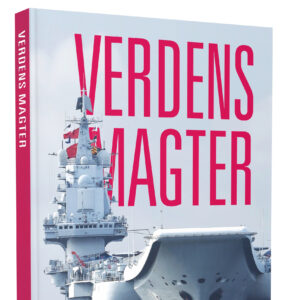

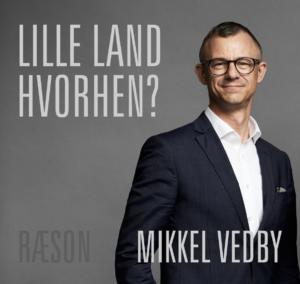

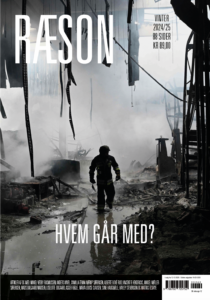
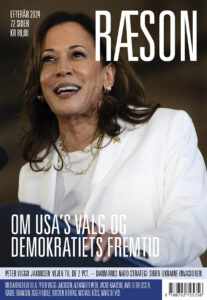
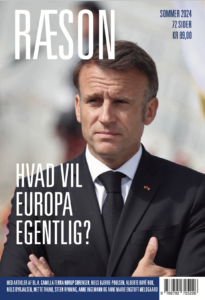
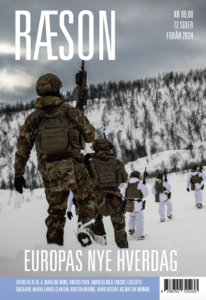
![Kampen om magten: „En meget berigende politisk bog […] Anbefales til indkøb‟](https://d.raeson.dk/wp-content/uploads/2020/02/usa.trump_-300x274.jpg)
